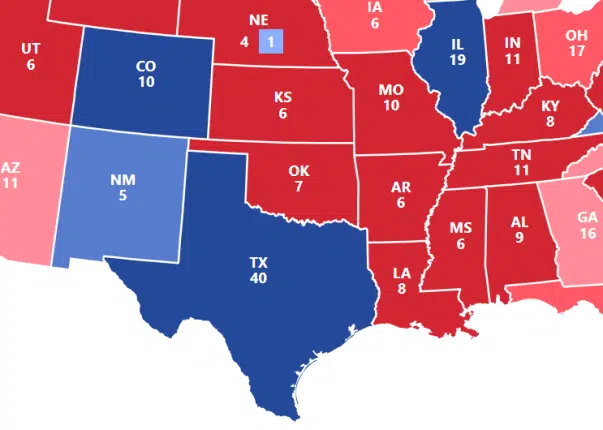 By Howard Rich — America learned in the aftermath of Hurricane Katrina that the private sector is far more capable of effectively responding to major natural disasters than is government. Now with Hurricane Irene – the most-hyped tropical system to hit our shores since Katrina – we’re learning that government is every bit as incapable when it comes to handling storm preparations.
By Howard Rich — America learned in the aftermath of Hurricane Katrina that the private sector is far more capable of effectively responding to major natural disasters than is government. Now with Hurricane Irene – the most-hyped tropical system to hit our shores since Katrina – we’re learning that government is every bit as incapable when it comes to handling storm preparations.
Billed by headline-hungry politicians (and legacy media sensationalists) as a cataclysm in the making, Hurricane Irene was preceded by the direst of somber-faced warnings from dozens of camera-hungry elected officials. Desperate to avoid any negative fallout from the storm, these leaders deliberately maximized the public fear factor (and their exposure) – while at the same time minimizing their own political risk.
Two days before its landfall, Barack Obama called Irene “an extremely dangerous and costly storm.”
“All of us have to take this storm seriously,” Obama said. “All indications point to this being a historic hurricane.”
More than thirty million Americans were placed under Hurricane warnings in the days leading up to Irene’s landfall – while as many as three million Americans were ordered to evacuate their homes. Yet before Irene made its first U.S. landfall near Cape Lookout, N.C., it had been downgraded to a category one storm. By the time it reached New York City the following day – it was no longer even a hurricane.
“No sooner had the roaring winds and driving rains of Hurricane Irene passed overhead than the denizens of lower Manhattan emerged to celebrate the storm that wasn’t,” one local reporter noted.
Early estimates indicate that Irene caused somewhere between $7-10 billion in damages. While that’s a significant number – it’s dramatically lower than forecasters were originally projecting. Meanwhile, the economic impact of shutting down the entire Eastern Seaboard for several days could top $25 billion, according to a University of Maryland economist.
In short, the government overreaction was much costlier than the storm itself.
By comparison, Hurricane Katrina caused more than $130 billion in inflation-adjusted damages – and resulted in more than 1,800 deaths. Meanwhile Irene has been blamed for approximately fifty deaths in thirteen states – although a careful examination of the circumstances surrounding these fatalities is revealing.
For example, a man in North Carolina died of a heart attack while installing plywood on his home in advance of Irene’s arrival. A man in Florida was killed after falling off of his surfboard the day after the storm passed. A man in Connecticut died when his canoe capsized, while a man in New York was killed in a windsurfing accident.
Meanwhile at least a dozen Irene-related deaths occurred as a result of traffic accidents or flooded cars – raising questions about the efficacy of evacuation orders. By contrast, only a handful of fatalities appear to be linked to people who stayed in their homes.
Also, beyond the millions of tax dollars spent on emergency preparedness efforts and clean-up costs, Irene is likely to spark still more government spending – even in states that weren’t hit by the hurricane.
For example, a government-funded “tourism researcher” in South Carolina recently argued that the state needed to spend money on a new advertising campaign in the aftermath of the storm – which completely bypassed the state.
“It’s very, very important that the tourism industry here put out the message, once the hurricane’s gone through, that, hey, we’re open for business again,” the official said.
As with most national emergencies, Irene was an excuse for politicians to alarm citizens, order them about and spend their money – and of course politicians didn’t bypass another opportunity to pad their approval ratings as they “saved” citizens from danger. And while government’s failure with Irene wasn’t as costly or catastrophic as it was in the aftermath of Hurricane Katrina, it’s yet another example of how our leaders simply cannot be trusted to manage these crises effectively.
The author is chairman of Americans for Limited Government.





